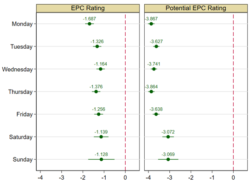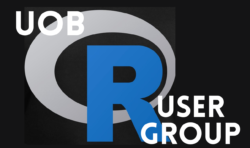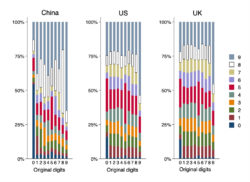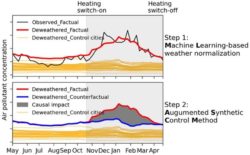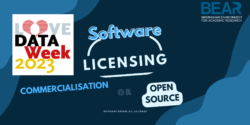In this case study we hear from Haonan Tian, a PhD student in Economics, who has been making use of BlueBEAR to enable her research into understanding the relationship between temperature and decision making. My research focuses on understanding how outdoor temperatures influence critical decision-making in the rating process of Energy Performance Certificates (EPCs). In the UK, EPCs … Continue reading “How BlueBEAR is helping us understand the relationship between outdoor temperature and decision-making”
Author: Aslam Ghumra
R User Group Event – Data Visualisation Seminar!
In this month’s R User Group meeting, with speakers Laura Bravo Merodio and Jack Sullivan, we look at data visualisation with ggplot2, and tips and tricks for making plots accessible to all. Date Tuesday 6 February 2024 Time 12:00 – 13:00 Location HybridIn-person: Elm House, G08ONLINE: Teams Meeting Link AgendaChair: Katy IvisonTalk 1: “An Introduction To … Continue reading “R User Group Event – Data Visualisation Seminar!”
How BlueBEAR is helping us understand price-setting behaviour
In this case study we hear from Zhuangchen Wu, a PhD student in Economics, who has been making use of BlueBEAR to enable his research into understanding price-setting behaviour. My research focuses on understanding price-setting behaviour using data from online sellers. Properties of price-setting have important implications for macroeconomic modelling, especially for monetary policy design. Unlike official inflation … Continue reading “How BlueBEAR is helping us understand price-setting behaviour”
How BlueBEAR is helping us evaluate air pollution control policies around the world
In this case study we hear from Bowen Liu, an Assistant Professor in Industrial and Business Economics, who has been making use of BlueBEAR to enable his research into evaluating air pollution control policies around the world. Understanding the effectiveness of clean air policies is challenging, for example, short-term changes in air quality are dominated by meteorological variations, … Continue reading “How BlueBEAR is helping us evaluate air pollution control policies around the world”
Exploring trends in graduate skills using BlueBEAR
In this case study we hear from Max Schroeder, a postdoc from the Department of Finance, who has been making use of BlueBEAR to enable his research into developing an economic model that correlates graduates’ observable outcomes with their unobservable skills. Universities tout the development of “graduate skills” as a key outcome of higher education, a promise that’s … Continue reading “Exploring trends in graduate skills using BlueBEAR”
Using BlueBEAR to calculate reflectivity
In this case study we hear from PhD student Elijah Uche, from Electrical Engineering, who has been making use of BlueBEAR to enable his research into remote monitoring of pipeline infrastructure using RADAR sensors for the detection of oil leaks. The project I am currently working on is the remote monitoring of pipeline infrastructure using RADAR sensors … Continue reading “Using BlueBEAR to calculate reflectivity”
Bringing to BEAR – Creating a Challenge for the BEAR Challenge
This year June came around again and it’s BEAR Challenge time! This is an event we hold every year to try and introduce University of Birmingham undergraduates and masters’ students to the world of High-Performance Computing (HPC). This year we attracted ten groups of students from across the university from computer science, physics, maths, and … Continue reading “Bringing to BEAR – Creating a Challenge for the BEAR Challenge”
Harnessing the power of BlueBEAR: A dive into second language acquisition and corpus linguistics
In this case study, we hear from Akira Murakami from English Language and Linguistics, who has been making use of BlueBEAR to enable his research into understanding how people acquire languages other than their native languages. My research lies at the crossroads of second language acquisition (SLA) and corpus linguistics. SLA is a discipline devoted to understanding … Continue reading “Harnessing the power of BlueBEAR: A dive into second language acquisition and corpus linguistics”
Digital Research Conversations – Love your Code/Software
Software is increasingly important for researchers, with both research staff and students finding themselves needing to write and develop their own software to produce data (e.g. through simulations) or analyse their results. There is a need to understand how to manage software used in research, including its curation, citation and how to store and share … Continue reading “Digital Research Conversations – Love your Code/Software”
The design and synthesis of new fluorescent probes
In this case study, we hear from Jake Barker a Ph.D. student in Chemistry, who has been making use of BlueBEAR and the BEAR Research Data Store to enable his research into the design and synthesis of new fluorescent probes. My name is Jake, and I am a 2nd year Ph.D. student in the O’Reilly group in … Continue reading “The design and synthesis of new fluorescent probes”

